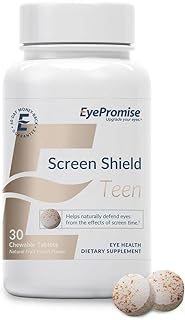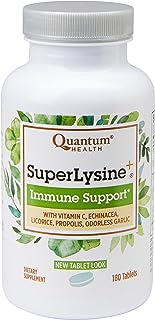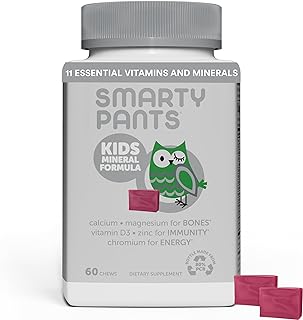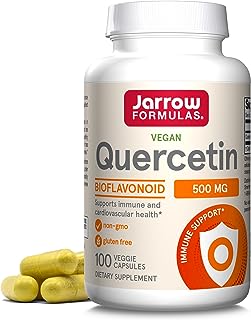When looking for the best multivitamin for children with autism, it’s important to think about a few key things to keep them healthy. There are a lot of different choices out there, so parents need to think about things like what’s in the vitamin, how much nutrition it gives, if there’s any extra sugar added, and if there’s anything that might cause an allergic reaction. It’s really important to choose a multivitamin that is clear about what’s in it and actually works well for kids on the spectrum. The goal is to give them the support they need to grow and develop in the best way possible.
See our guide to the best spectrum children multivitamins.
Quality and source of ingredients
When selecting multivitamins for children with autism, it’s important to prioritize quality and natural ingredients. Opting for supplements that are made with good-quality, natural ingredients can greatly benefit the overall health of children on the spectrum. Choosing products that have vitamins and minerals from whole foods and don’t contain artificial additives can ensure that kids are getting the best nutrition.
It’s crucial to carefully read the labels of multivitamins to check where the nutrients come from and to avoid any allergens or harmful substances. Picking multivitamins that are specially designed for the unique nutritional needs of children with autism can give parents peace of mind and help with their growth and development. Investing in high-quality supplements that are made with care and attention to sourcing can support the health of children with autism in a holistic way.
Nutrient content and bioavailability
When choosing multivitamins for children on the autism spectrum, it’s important to focus on the nutrients they contain and how easily the body can use them. Quality supplements with essential vitamins and minerals are key to meeting the unique needs of these children. Look for products made to help with common issues like picky eating or digestion problems in spectrum children. A good multivitamin should have vitamins A, B, C, D, and E, along with minerals like zinc, magnesium, and iron, all of which are important for health and brain function.
Along with the nutrients, it’s also important to consider how well the body can absorb and use them. Choosing supplements with good bioavailability, such as methylated vitamins or chelated minerals that are easily absorbed, can make a big difference in how effective the vitamins and minerals are. Prioritizing nutrient-rich and easily used multivitamins not only helps meet the nutritional needs of spectrum children, but also shows a commitment to their overall health and development. By making informed choices based on nutrients and bioavailability, parents and caregivers can give their children the support they need to grow and thrive.
Absence of artificial colors, flavors, and preservatives
Health-conscious parents are mindful when choosing children’s multivitamins, aiming for options that are free of artificial colors, flavors, and preservatives. This not only promotes a natural and wholesome approach to nutrition but also reduces the risk of triggering sensitivities or adverse reactions in kids. Opting for spectrum children’s multivitamins without artificial ingredients allows caregivers to prioritize their children’s overall well-being and development. These pure and simple formulations demonstrate a commitment to offering high-quality supplements that support children’s growth and vitality in a genuine and effective way.
In a market full of processed and artificially enhanced products, selecting multivitamins that are free from artificial additives reinforces a focus on authenticity and transparency in children’s nutrition. Spectrum children’s multivitamins that stick to pure ingredients and eliminate unnecessary additives help parents promote a culture of wellness centered around nutrient-dense choices. This not only protects children’s health but also fosters a mindful approach to food and supplements, laying a foundation for lifelong habits that value natural goodness over artificial enhancements.
Allergen information and potential cross-contamination risks
Choosing the right multivitamins for children on the spectrum involves paying close attention to allergens and the possibility of cross-contamination. Parents of children with sensitivities know how important it is to carefully read labels to make sure the vitamins are safe to use. Although many trusted brands try their best to provide accurate allergen information, the risk of cross-contamination is still a concern. Families with dietary restrictions and allergies worry about accidentally exposing their child to allergens. Manufacturers need to be transparent with their labeling and have strict quality control to reduce the risk of cross-contamination and ease parents’ worries.
The multivitamin market is filled with different options, so it’s up to consumers and producers to focus on safety and being open about allergen information. The health of spectrum children is crucial, and it’s very important to choose products that match their dietary requirements. Understanding allergen details and cross-contamination risks can be overwhelming, but informed parents who stay alert can make choices that protect their child’s health. Consumers and manufacturers working together are key to making a safer and more inclusive environment for spectrum children and their families.
Reputation and trustworthiness of the brand
When choosing multivitamins for children on the spectrum, it’s important to consider the reputation and trustworthiness of the brand. A brand’s reputation reflects the quality and reliability of its products. Choosing a well-known brand that is committed to producing safe and high-quality supplements can give you peace of mind. Trustworthiness is linked to reputation and involves being transparent, ethical, and using scientific methods in the production process. It’s crucial to pick a brand that focuses on the specific nutritional needs of children on the spectrum. By selecting multivitamins from a reputable brand, you not only protect your children’s health but also support a company that values integrity and consumer well-being.
Conclusion
When deciding whether to give children on the autism spectrum multivitamins, it’s important to be careful and think about the good and bad effects. Multivitamins can give children important nutrients they might not be getting from their food. But it’s necessary to talk to a doctor to make sure the multivitamins are safe and work well for each child. By making smart decisions and giving personalized attention, parents and caregivers can help children on the spectrum stay healthy and happy. This approach will support both their body and mind.



